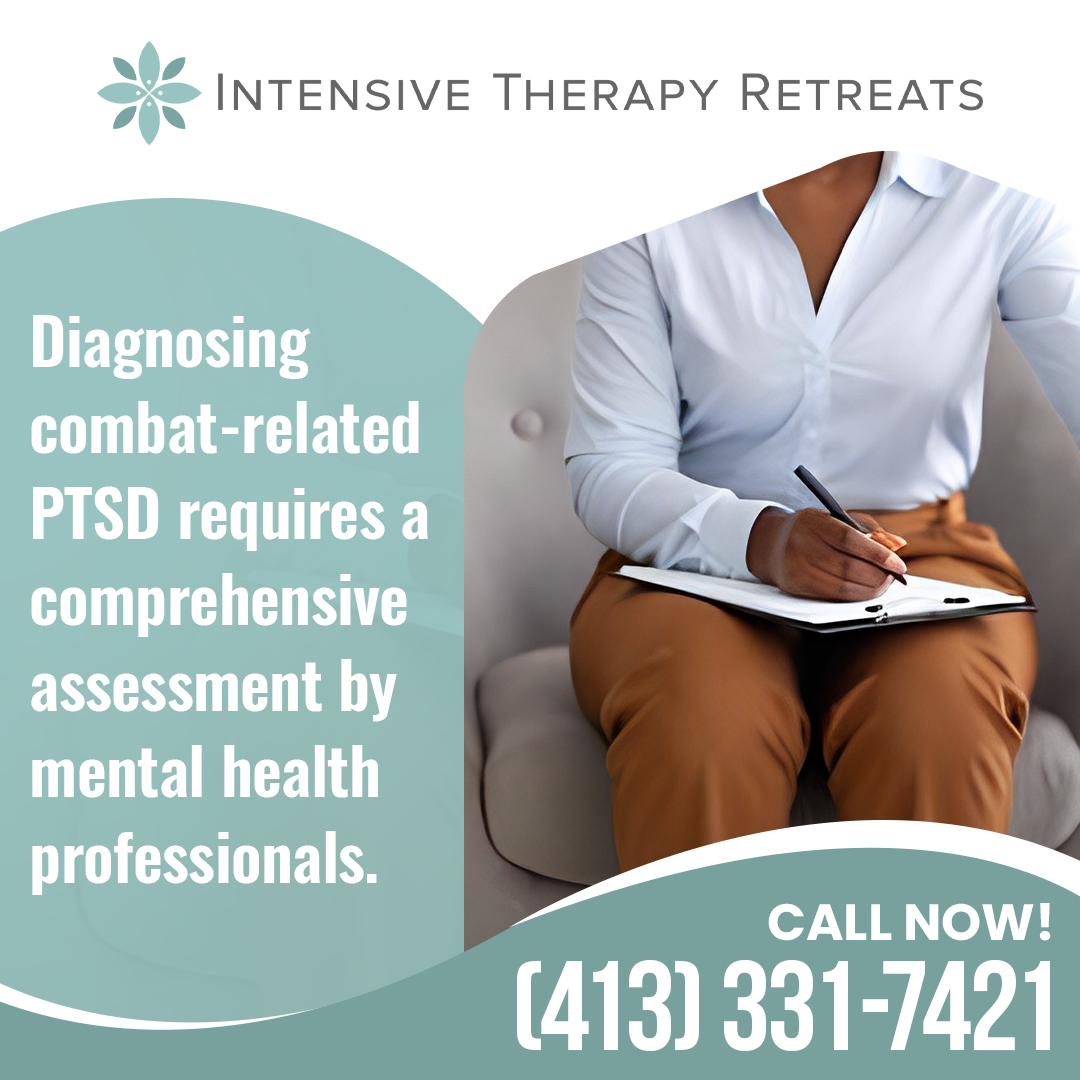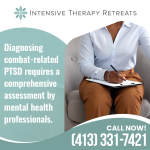Life can change in an instant, leaving individuals grappling with the aftermath of traumatic experiences. Post-Traumatic Stress Disorder (PTSD) is a psychological condition that affects those who have faced deeply distressing events. To shed light on the various forms of trauma that can lead to PTSD, Intensive Therapy Retreats embarks on an exploration that covers combat trauma, accidents, natural disasters, and interpersonal violence. This comprehensive guide aims to raise awareness, reduce stigma, and provide valuable insights into PTSD diagnosis and symptoms.
Combat Trauma: Beyond the Battlefield
Combat trauma, often associated with military personnel, extends its reach beyond the battlefield. Intensive Therapy Retreats emphasizes that anyone exposed to armed conflict or life-threatening situations can have PTSD. The intensity and brutality of combat situations can lead to debilitating symptoms such as intrusive thoughts, flashbacks, nightmares, severe anxiety, and emotional numbness. These symptoms significantly impair daily life, relationships, and employment. Diagnosing combat-related PTSD requires a comprehensive assessment by mental health professionals. Real-life stories of individuals who have grappled with combat trauma provide a human perspective during the sessions, fostering awareness, reducing stigma, and offering hope to those facing similar challenges. Intensive Therapy Retreats specializes in providing support and treatment for combat-related PTSD.
Accidents and Near-Death Experiences: Navigating Trauma's Aftermath
Accidents, such as car crashes or near-death experiences, can leave deep emotional scars and profoundly affect mental health. Intensive Therapy Retreats emphasizes that PTSD can develop in individuals who have faced such traumatic events. Symptoms of PTSD in these cases often include intrusive thoughts, flashbacks, hypervigilance, and avoidance behaviors. A formal diagnosis requires that these symptoms persist for at least one month and significantly interfere with daily life. Coping strategies, such as Art Therapy (ART), Internal Family Systems (IFS), and Eye Movement Desensitization and Reprocessing (EMDR), offer effective means to manage symptoms and promote healing.
The Impact of Natural Disasters: Navigating Healing Amidst Devastation
Natural disasters, from earthquakes to hurricanes, can unleash physical and psychological devastation. Intensive Therapy Retreats in Northampton underscore the development of PTSD in the aftermath of such catastrophic events. Symptoms commonly include intrusive memories, severe anxiety, hyperarousal, nightmares, and avoidance behaviors. Survivors may also experience feelings of guilt, anger, or numbness. Stories of resilience and recovery within affected communities are powerful reminders of the human spirit's capacity to endure and heal.
Interpersonal Violence: Reclaiming Lives After Trauma
Interpersonal violence, encompassing domestic abuse, sexual assault, and physical assault, leaves victims with deep emotional and psychological wounds. PTSD symptoms in these cases may include recurring intrusive thoughts, intense anxiety, hypervigilance, emotional numbness, and avoidance behaviors. Intensive Therapy Retreats provides specialized care and support for survivors of interpersonal violence, offering a safe and compassionate environment where healing can begin.
Taking the First Step Towards Healing with Intensive Therapy Retreats
In all its forms, trauma leaves a profound impact on individuals. However, healing and recovery are attainable with the right support and understanding. At Intensive Therapy Retreats, they empower individuals to overcome the challenges they face, offering hope, compassion, and effective therapies to guide them on their journey to healing and recovery from PTSD.
About Intensive Therapy Retreats:
In every form, trauma has a profound impact on individuals, but with the right support and understanding, healing and recovery are achievable. Intensive Therapy Retreats is a leading mental health institution dedicated to providing specialized care and support for individuals facing trauma-related challenges, including PTSD. Their intensive therapy programs offer a safe and compassionate environment for healing and recovery. With a team of experienced professionals, they empower individuals to take the first step towards a brighter future. Contact them at (413) 331-7421 to book a meeting with a retreat specialist and learn more about their mental health retreats.


.jpg)


























